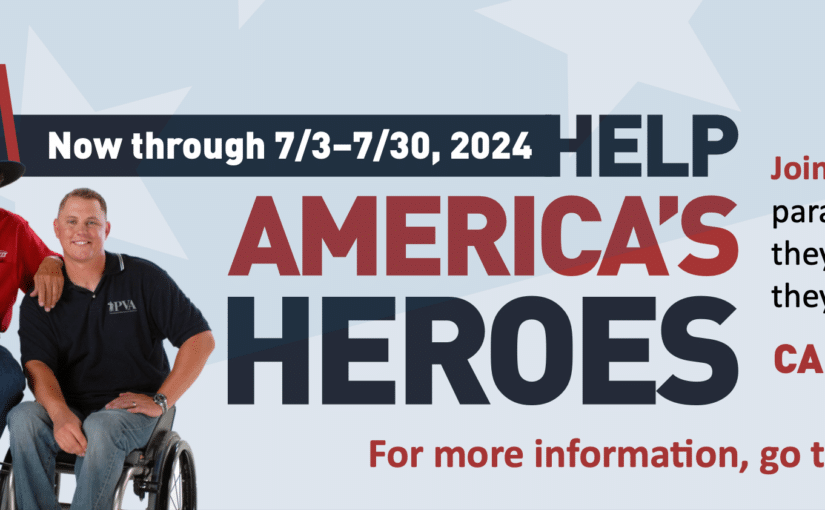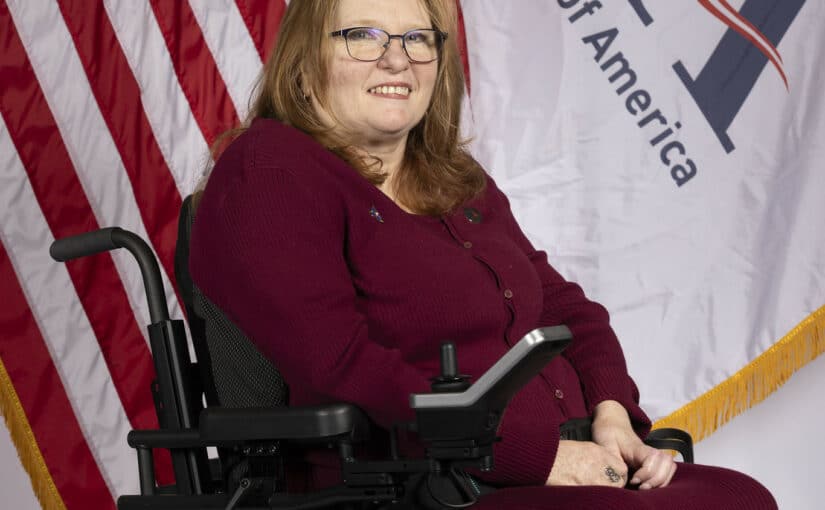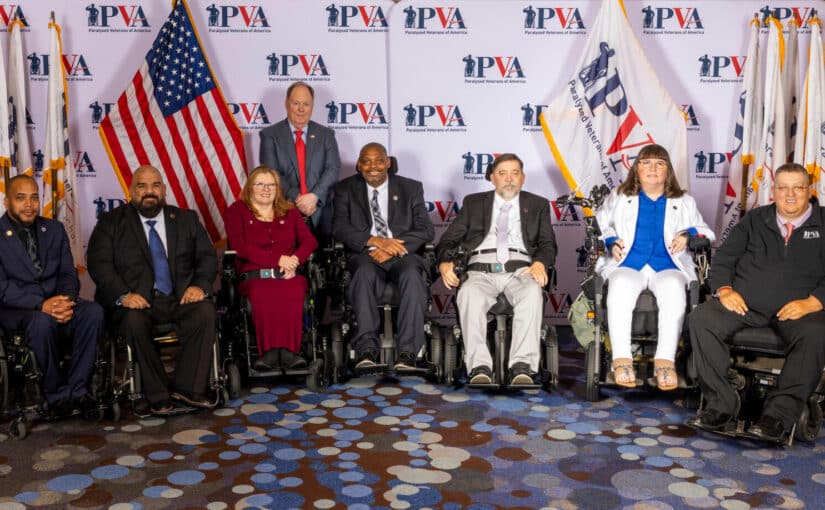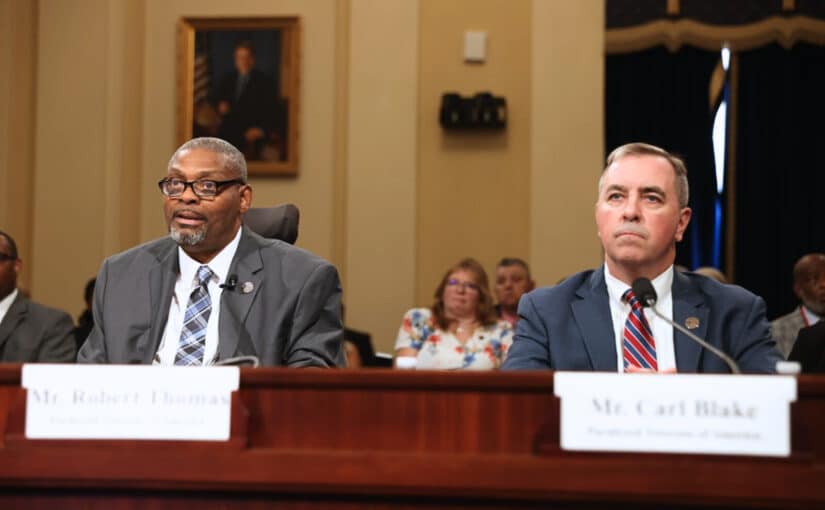Paralyzed Veterans of America expresses concerns about implementation of the VA MISSION Act during joint hearing on Capitol Hill
Post Date: March 7, 2019Media Contact: Liz Deakin LizD@pva.org, 202-416-7627
WASHINGTON (March 7, 2019) — The leadership of Paralyzed Veterans of America met with lawmakers this week to ensure veterans’ health care, benefits, and civil rights are prioritized during the 116th Congress. Before a joint hearing of the House and Senate Committees on Veterans’ Affairs today, Paralyzed Veterans of America National President David Zurfluh emphasized the need for proper implementation of the VA MISSION Act and support for caregivers.
“If VA and Congress execute the VA MISSION Act fully, faithfully and effectively, veterans’ health care will enter a new era marked by expanded, timely access to high quality care for all enrolled veterans,” Zurfluh said. “But if they deviate from the clear and widespread consensus reached by all key stakeholders, the VA health care system could enter a period of decline with devastating consequences for veterans who rely on VA for their care, and perhaps even threaten the viability of the VA health care system itself.”
Passed last year, the VA MISSION Act is critical legislation that seeks to improve the quality, access and timeliness of VA care. Paralyzed Veterans of America supports the Act, but expresses concerns regarding VA’s ability to properly implement its new community care program. As part of the VA MISSION Act, eligible veterans are also able to access urgent care in the community. However, veterans with service-connected disabilities will be charged co-payments after three visits.
“We urge the Secretary to exercise his authority over the VA MISSION Act and not charge veterans who aren’t required to pay a copayment under Title 38 for VA direct care,” said Zurfluh. “Under no circumstances should a veteran ever be charged for care related to a service-connected illness or injury.”
Last year, eligibility under VA’s Comprehensive Family Caregiver Program was expanded to include catastrophically-injured veterans from eras pre-9/11. This action corrected the inequity of the department’s Caregiver Support Program and will improve the quality of life for thousands of veterans and their caregivers. But Zurfluh noted, there are many areas regarding the expansion of this program that need proper action to succeed.
With the inclusion of older veterans into the family caregiver program, “VA must be able to accommodate the increased amount of caregivers, and provide the adequate and relevant training they need in order to sustain their veteran and maintain their own health,” said Zurfluh.
Paralyzed Veterans of America is advocating for many issues that affect veterans with spinal cord injuries or disorders (SCI/D) and all people with disabilities. For more information on our 2019 policy priorities, visit www.pva.org/PVAadvocates.




